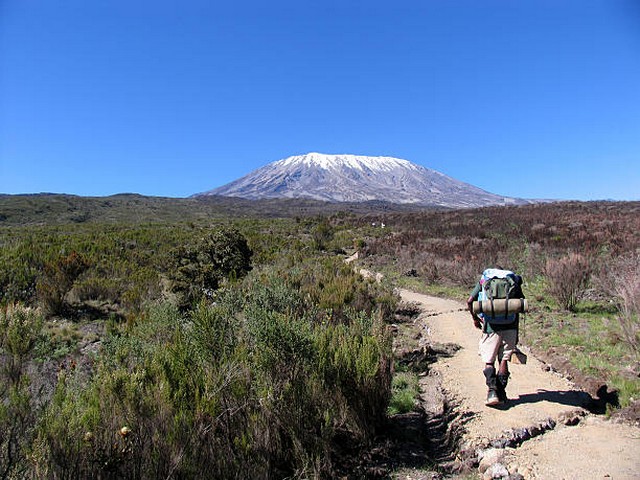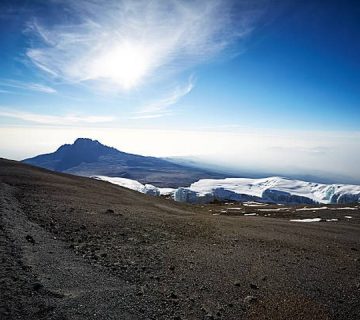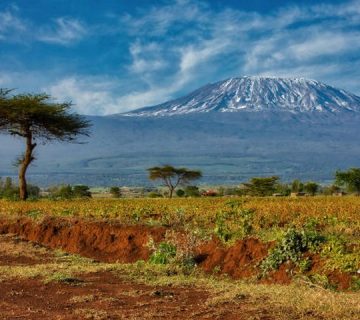Meet Local Tribes During Kilimanjaro Trekking
Embarking on a trek to the majestic Mount Kilimanjaro isn’t just about scaling the highest peak in Africa; it’s an immersive journey into the heart of Tanzanian culture and heritage. Here at Kilimanjaro Centre for Trekking and Ecotourism (KCTE), we believe that a true Kilimanjaro trek transcends physical boundaries, connecting you deeply with the local communities and their timeless traditions. As you prepare to conquer the roof of Africa, why not enrich your experience by meeting the local tribes during your Kilimanjaro trekking adventure?
Why Meeting Local Tribes Enhances Your Trekking Experience
Cultural Immersion
Meeting the local tribes, such as the Chagga people who live on the slopes of Mount Kilimanjaro, offers a unique glimpse into an age-old culture that has coexisted with this colossal mountain for centuries. These interactions provide a deeper understanding and appreciation of the mountain’s spiritual significance and the people’s resilience and adaptation to the environment.
Sustainable Tourism
By engaging with local communities, you contribute to sustainable tourism, which supports economic development in the region. Your visit can make a significant positive impact on local livelihoods through cultural exchanges, purchasing local crafts, or even participating in community-led tourism initiatives.
Memorable Experiences
The memories of sharing stories, enjoying traditional meals, or learning a local dance can be just as vivid and cherished as the panoramic views from Uhuru Peak. These experiences create a profound connection between you, the land, and its people, enriching your overall trekking adventure.
Discover the Heartbeat of Kilimanjaro: The Chagga Tribe
History and Heritage
The Chagga tribe, one of the largest ethnic groups in Tanzania, has lived on the fertile slopes of Kilimanjaro for hundreds of years. Known for their advanced agricultural techniques and intricate irrigation systems, the Chagga have a rich history intertwined with the mountain. Exploring their villages and learning about their traditional ways of life offers an extraordinary insight into their enduring culture.
A Day in the Life
Imagine starting your day with a visit to a Chagga household, being greeted with warm smiles and a cup of freshly brewed local coffee. As you wander through banana and coffee plantations, you’ll witness the daily routines and the ingenuity of the Chagga farming practices. Participate in a cooking lesson where you can learn how to prepare a traditional meal, an experience that tantalizes the taste buds and provides a tangible connection to the culture.
Cultural Celebrations
Join in the lively celebrations and traditional dances that are often part of community gatherings. These cultural festivities are a vibrant showcase of Chagga heritage, complete with colorful attire, energetic drum beats, and heartfelt singing. It’s a chance to feel the heartbeat of Kilimanjaro through its people.
Other Tribes of Kilimanjaro
The Maasai
While the Maasai are more commonly associated with the plains of the Serengeti, some communities reside near the lower slopes of Kilimanjaro. Known for their distinctive customs, dress, and pastoral way of life, visiting a Maasai village can provide another fascinating cultural layer to your trekking journey.
The Pare
On the southeastern slopes of Kilimanjaro lie the Pare mountains, home to the Pare tribe. Known for their wood carving and agricultural expertise, the Pare people offer another unique cultural perspective. Exploring their terraced fields and traditional houses provides insight into their symbiotic relationship with the land.
Plan Your Trek with KCTE
At Kilimanjaro Centre for Trekking and Ecotourism (KCTE), we are passionate about delivering an authentic and unforgettable Kilimanjaro experience. Our tailored treks are designed not only to challenge and exhilarate but also to enlighten, offering you a window into the soul of Tanzania.
Why Choose KCTE?
- Expert Guides: Our local guides are not only experienced in safely navigating the mountain’s terrains but are also knowledgeable about local cultures and traditions.
- Community Connections: We have established strong relationships with local tribes, ensuring respectful and genuine interactions.
- Sustainable Practices: We are committed to responsible tourism practices that benefit both the environment and local communities.
FAQS
Q: Can I visit the local tribes if I’m on a tight trekking schedule?
A: Absolutely! We offer various trekking packages that can include cultural visits, even if your time is limited. These enriching experiences are seamlessly integrated into your journey.
Q: How does visiting local tribes benefit them?
A: By engaging with local tribes, you help provide a source of income and support community projects. This interaction promotes cultural preservation and sustainable development.
Q: What should I bring as gifts for the local tribes?
A: It’s thoughtful to bring gifts, but we encourage culturally sensitive and useful items. School supplies, books, or medical supplies are always appreciated. We advise against giving sweets or money directly to children.
Q: Are there specific cultural norms I should be aware of during my visit?
A: Yes, respecting local customs is crucial. This includes dressing modestly, asking permission before taking photos, and following the guidance of your KCTE guide on proper behavior.
Embrace the Mountain, Engage with Its People
Your journey to the summit of Kilimanjaro is more than a climb; it’s an opportunity to forge lasting connections with the incredible cultures that call this mountain home. At Kilimanjaro Centre for Trekking and Ecotourism (KCTE), we are dedicated to providing you with a trek that is as culturally enriching as it is physically challenging. Ready to meet the local tribes during your Kilimanjaro trekking adventure? Book with KCTE today and step into a world of adventure, culture, and unforgettable memories.




